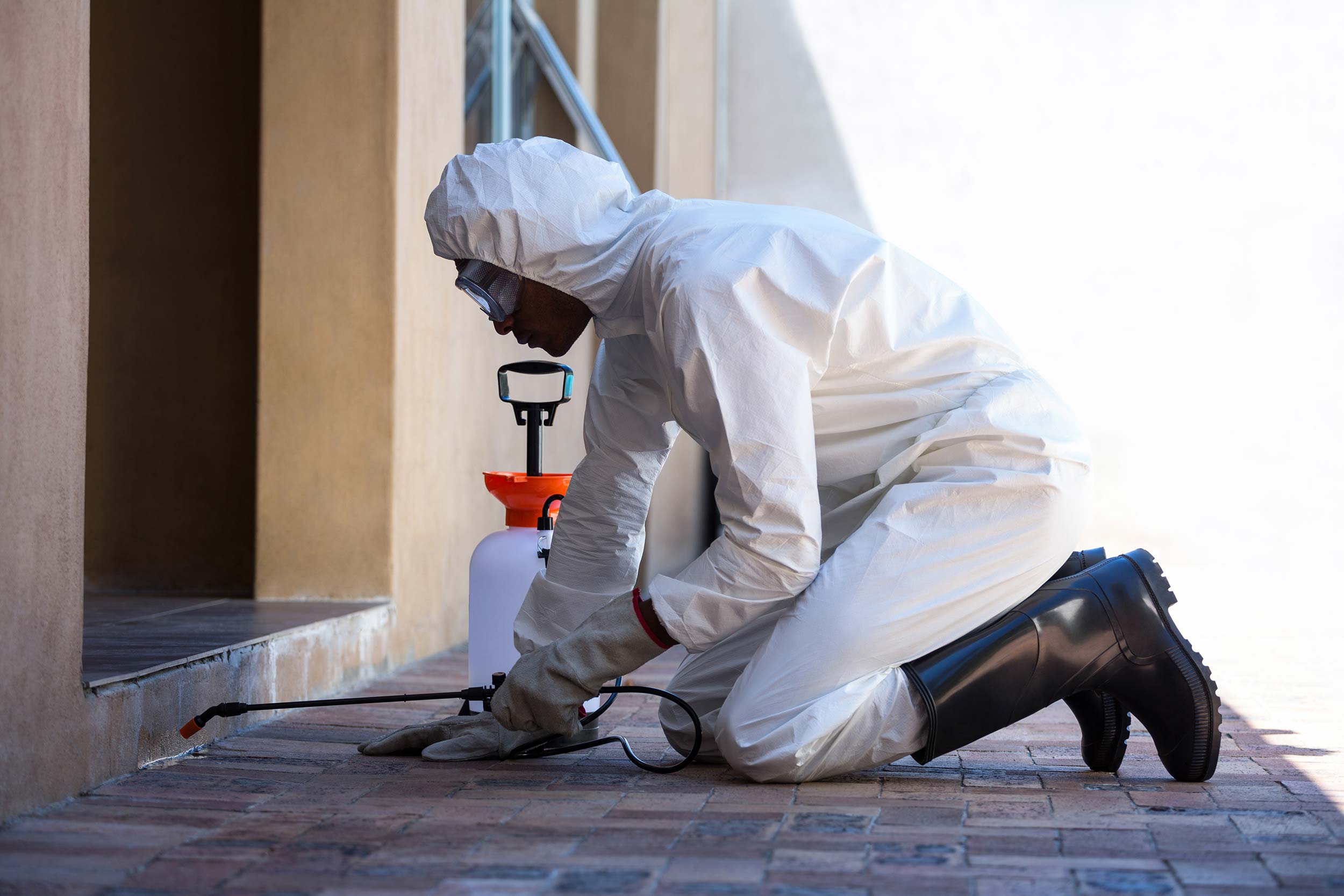If you get bedbugs, you don't have to call a licensed pest control company, but you'd be foolish not to, is the take-away message from the warning issued by environmentally friendly Protection Agency (EPA) last August. "Utilizing the wrong pesticide or deploying it incorrectly to take care of for bedbugs can make you, your family, and your pets sick," the EPA said in a consumer alert quoted by The Hill Healthwatch online. "It can also make your home unsafe to call home in - and may not solve the bedbug problem."
Alarmed by reports of dangerous pesticide misuse and extreme measures being taken by some homeowners and apartment dwellers in do-it-yourself efforts to eradicate bed bugs, the U.S. EPA and Centers for Disease Control and Prevention (CDC) issued a joint statement last July warning consumers against using outdoor pesticide products inside their homes in attempts to reduce bed bugs. Reports from licensed pest control professionals in the field and news media of individuals dousing their beds, their pajamas and also bathing their children in garden insecticides has caused growing concern among government officials, the medical community, public health guardians, and the National Pest Management Association (NPMA). The usage of harsh chemicals not approved by the EPA for residential use could cause severe burn-like irritation of the skin and eyes, possible damage to the central nervous system, and may even expose you to carcinogens.
There have also been numerous news reports of house and apartment fires begun by desperate people using highly flammable liquids to kill bedbugs. In January, a Cincinnati, Ohio man who was wiping down his furniture with an assortment of insecticide and alcohol started a fire in his apartment when his cigarette ignited fumes from the chemical mixture. In July 2008, an Eatontown, New Jersey man blew up his apartment while attempting do-it-yourself pest control. A pilot light ignited the chemical spray and fumes causing an explosion that blew out leading windows of the apartment and resulted in a fire that destroyed the man's apartment and caused serious harm to neighboring units.
"Pest control firms reported seeing many ineffective and potentially dangerous measures used by do-it-yourselfers, including ammonia, bleach, fire, smoke, kerosene, wasp spray, and bug bombs, together with concentrated pesticides bought online," University of Kentucky entomologist and national bedbug expert Michael Potter, writes in Bugs Without Borders, Defining the Global Bed Bug Resurgence, an international survey of pest management companies recently conducted by the University of Kentucky in conjunction with the NPMA. "As bedbug victims become more desperate, serious injury may result from such applications, especially the type of who choose never to hire a professional," he warns.
Bedbugs usually do not always react to home treatment. These apple seed-sized insects that prey on human blood are hard to kill, a function of these biology and behavior. At best, do-it-yourself home treatments may force bedbugs to relocate, spreading infestations quicker. These insects have a tough, protective carapace that is not easily penetrated. To kill, pest control products must enter into direct physical connection with the insect; and their eggs are unaffected by products currently approved by the EPA for residential use. When not feeding, bedbugs hide in inaccessible spaces deep inside minute crevices, inside walls, behind baseboards, under floorboards, and inside electronic devices. Bedbugs and their eggs may also be easily transported on clothing and belongings, allowing infestations to quickly spread through a home or apartment building. This mix of biology and behavior makes it extremely difficult to kill an entire bedbug infestation with a single pest control treatment. Pest Control Companies Highland Park Texas spaced two weeks apart are typically required to successfully exterminate a bedbug infestation and make sure that all hidden bugs and newly-hatched eggs have already been killed.
Professional extermination by way of a licensed pest control company with an expertise during intercourse bug elimination is the best approach to exterminate bed bugs. The EPA, on the Bed Bug Information Page posted on its website, states, "Getting a pest management professional (PMP) involved as soon as possible rather than taking time to try to treat the problem yourself is very able to preventing further infestations."
Fast action is essential in battling bed bug infestations. Bed bugs reproduce at an alarming rate and infestations can grow quickly. During its 6- to 12-month lifespan, a female bed bug can lay 500 eggs with offspring with the capacity of reproducing within a month. It is common to see three or more bed bug generations present in an established infestation. Prompt treatment in the initial stages of infestation can limit the infestation and prevents it from spreading.

To successfully treat bedbug infestations, licensed pest control professionals employ a combination of environmental management procedures, called Integrated Pest Management (IPM), and a number of pest control materials approved by the EPA for residential only use by licensed pest management professionals. Effective bedbug extermination begins with meticulous pre-treatment preparation to remove clutter, clothing, bed linens and other items which might allow bedbugs to flee exposure to pest control materials. When site preparation is complete, a combination of pest control materials is employed to attack bedbugs on multiple levels.
Concerns about safe practices issues that have arisen from misuse of pest control chemicals by unlicensed or improperly trained pest controllers and unqualified contractors attempting to cash in on public fear prompted the EPA to warn consumers in order to avoid insect extermination services made out of "unrealistic promises of effectiveness or low cost."
Last July, a Newark, New Jersey pest control company was accused of illegal application of chemicals not approved for residential use. While providing bed bug treatments to 70 homes and apartments units, technicians sprayed powerful chemicals on mattresses and children's toys. In Cincinnati, Ohio last June, an unlicensed contractor hired to exterminate bed bugs saturated an apartment complex with an agricultural pesticide, sending seven tenants to a healthcare facility and causing public health authorities to quarantine the property.
